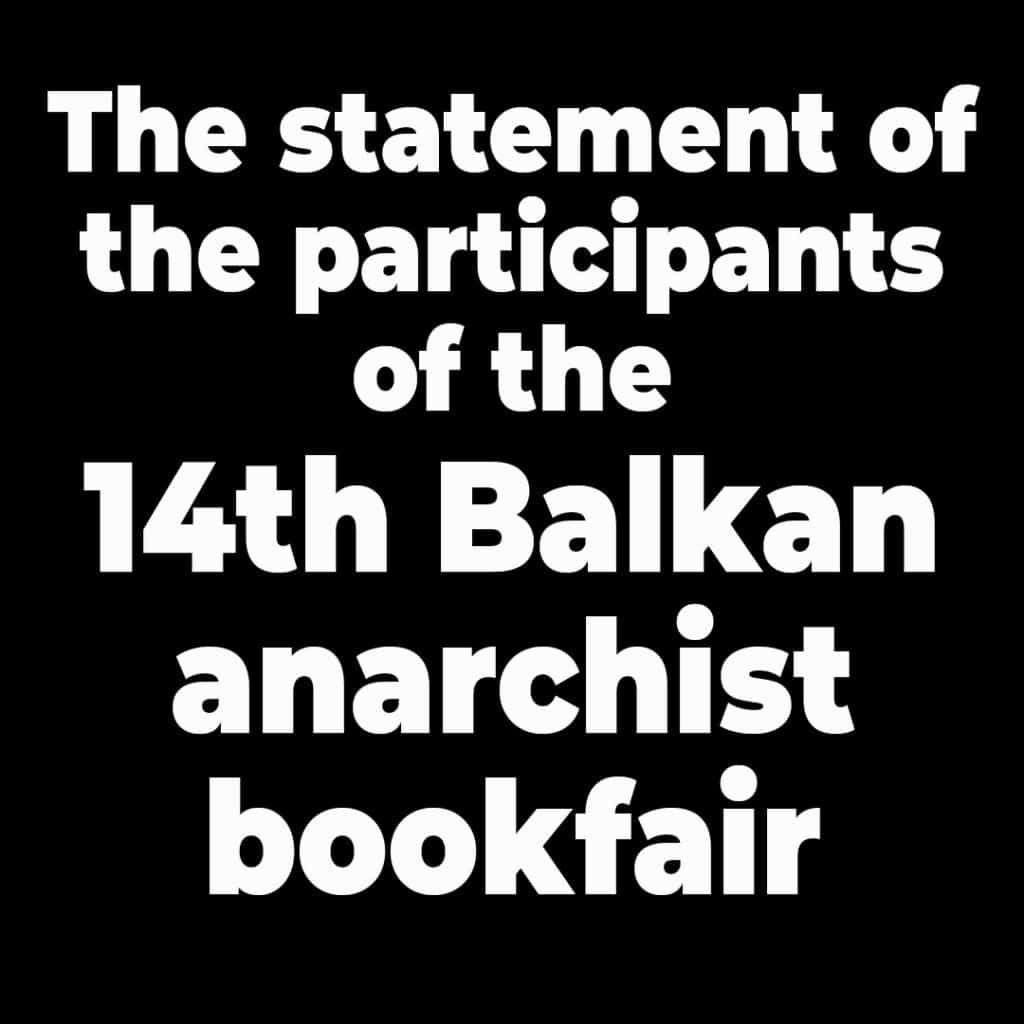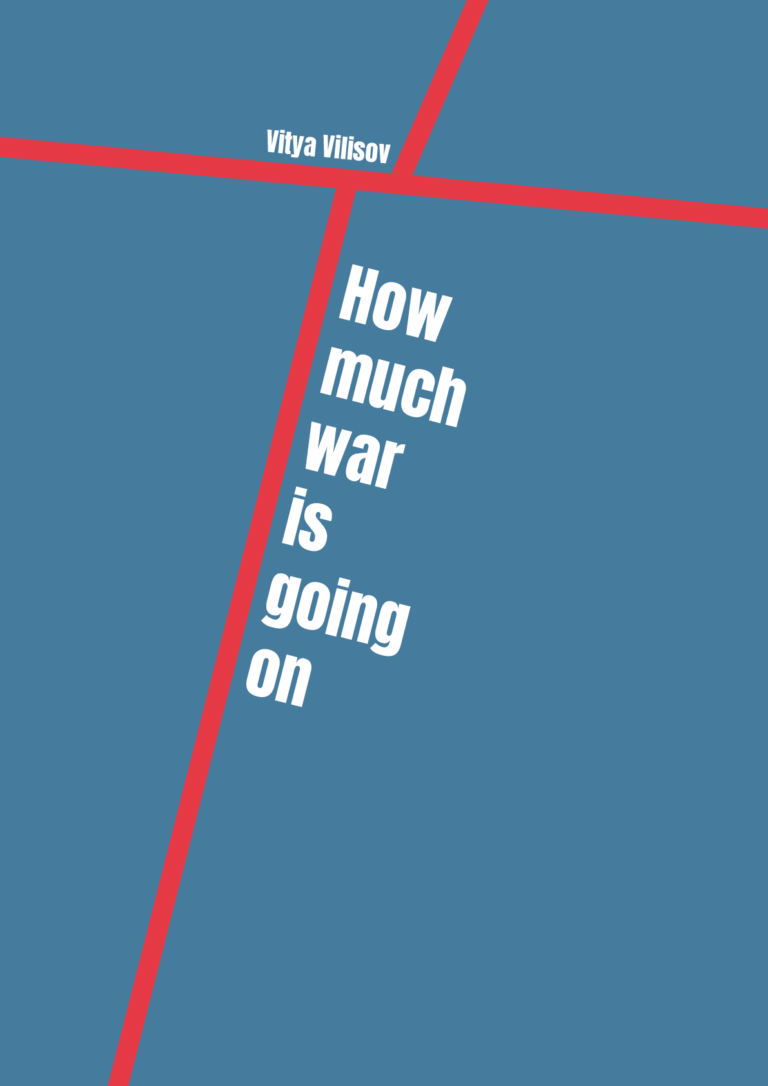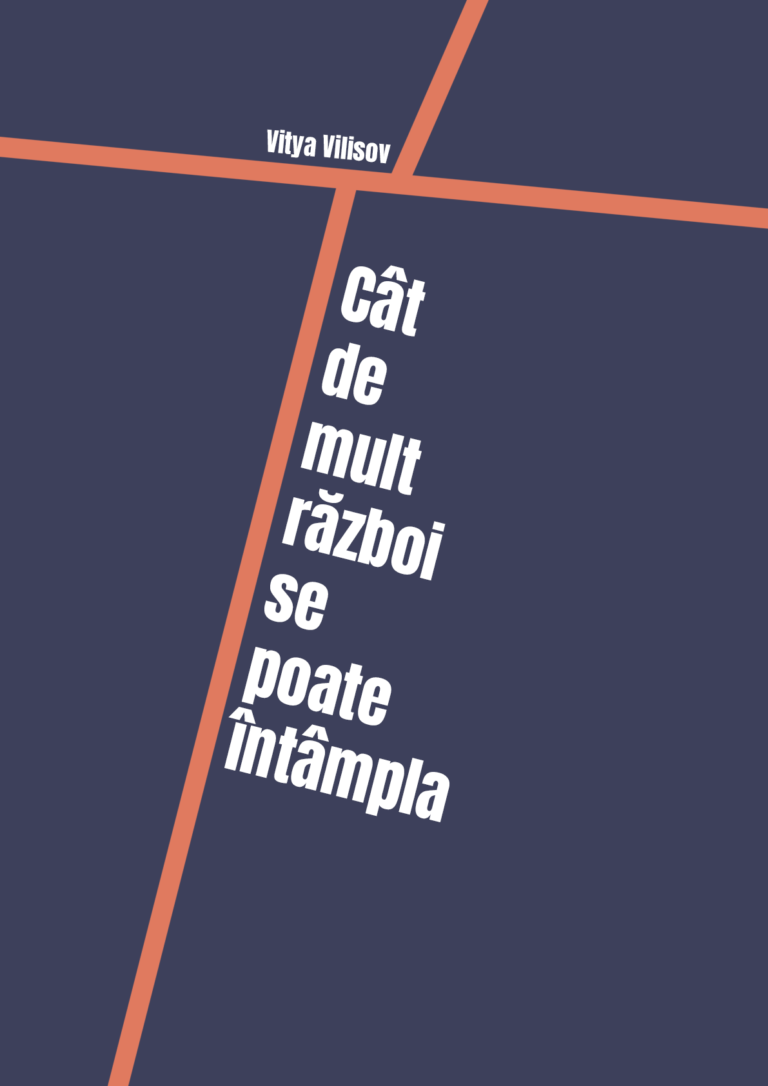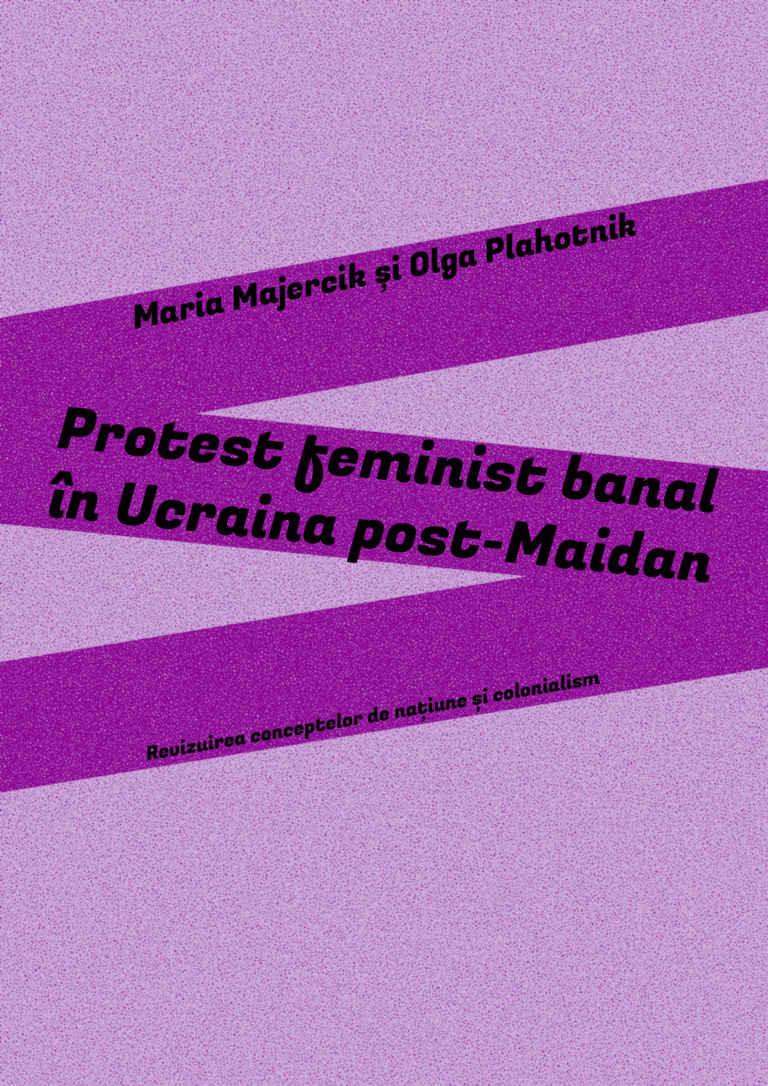Between 24th and 26th of June 2022, after two years of COVID-imposed delay, many collectives, initiatives and individuals from the anarchist and anti-authoritarian movement gathered again in Cluj/Kolozsvár for the 14th edition of the Balkan Anarchist Bookfair. We came from different corners of the Balkans and from beyond: from the so-called bulgaria, slovenia, romania, greece, turkey, croatia, hungary, serbia and also from the so called lithuania, austria, germany, switzerland, france and brazil. We came together to exchange ideas and news on recent and ongoing struggles and to strengthen concrete relations of trust and solidarity among comrades.
We discussed many issues, drew some conclusions, but also left many questions open.
We opened our discussions with a reflection on internationalism and mutual aid. We reminded ourselves that Balkan Anarchist Bookfair is embedded in the tradition of international organizing beyond borders that has been characteristic for the anarchist movement from its very beginning. Parallels were also drawn between systems of oppression in Latin America and in the Balkans, both geographies being at the periphery of the global capitalist system and affected by the history of exploitation. Again we affirmed that a common analysis and action is practically impossible without being rooted in direct personal relations for which shared physical spaces – one of which is also BAB itself – are invaluable. We continue to believe that to engage in meaningful international solidarity is to challenge and disrupt the centers of capitalist and state powers in particular geographies where we are active and not to focus solely on the few global superpowers.
The shadow of war looms heavily over the continent. The Balkans are still deeply marked by the experience of wars in former Yugoslavia. By drawing on this painful historical lesson we emphasize that the recent escalation of the war in Ukraine once again demonstrates the willingness of the global state and capitalist forces to engage in organized and technologically sophisticated violence, mass killings and systematic destruction. War in Ukraine is not a unique phenomenon, rather it is just the latest in a series of wars that are inextricably linked to the competition for global domination. All these are the tools by which capitalist domination over people, resources and territories is sustained and widened. As anarchists and antiauthoritarians we oppose all wars and militaristic projects. We aim for active resistance to the war and everything that fuels it – from nationalism, religious extremism to patriarchy and the idea that infinite economic growth is the central purpose of social organisation.
We express our total solidarity with all those affected by the destructive forces of war. We acknowledge the extremely difficult situation of our comrades in Ukraine, who are fighting for their survival and also of those in Russia and Belarus that are facing extreme repression due to their opposition to the war. In our discussions we kept returning to a set of questions for which we believe many different practical answers should be found: How to resist the war and militarization in our own contexts? How to form mutual aid and solidarity with the affected? How to avoid our efforts being used to justify the perpetuation of war and entrenchment of capitalist interests? Above all, we have to resist the spectacle of war that simplifies everything in order to manufacture our compliance with the decisions of the elites who control states, military industry and armies. Instead, we should strive to understand the role of war in capitalist systems as well as the causes of each particular conflagration to be able to resist and reject the submission of ourselves to the ongoing activities of the war machines. In this context the building of social movements from below is indispensable.
Another set of discussions was dedicated to the political layer of queerness as an antinormative and antiauthoritarian practice. We emphasized the importance of continuous development of anarcha-feminist and queer practices in the Balkans and identified some specific fields for future action:
- In our political organizing it is necessary to move beyond the repressive structures and consciously dedicate ourselves to tackle patriarchy also when we encounter it in anarchist and antiauthoritarian movements. For this we need to engage sincerely with each other, paying attention to the gender-based oppression that remains an ongoing aspect of our lives, while striving to build togetherness and respect beyond socially imposed or self-imposed categories. It was stressed that practices of care are key for achieving these goals. We are pleased to see BAB as a positive example of such approach.
- We acknowledge that there is a lack of queer anarcha-feminist literature in the Balkans and recognize it as an issue demanding our immediate engagement.
- We pointed out that in many geographies COVID-19 crisis, the new war and the rise of new fascist forces coincide with the introduction of repressive legislation that particularly affects women and queer people. We foresee that the wide attack on women’s autonomy and control over their own bodies will continue.
We also see how increasing authoritarian social and political forces continuously reinvent masculinity in a manner that is very much in resonance with the needs of the war machine. Therefore, the fight against patriarchy is at the same time the fight against war and militarization. But the new war is not the only recent crisis strengthening the repatriarchalization of our societies. Therefore a struggle against all attacks on our abilities for reproduction has to be at the core of our organizing efforts. We believe that the tools and approaches developed by the anarcha-feminist comrades can be useful to all the anarchist and antiauthoritarian currents. Among them is the need to provide the resources to strengthen queer anarcha-feminist perspectives in the Balkans, and to continue to reflect on what it means to create safer spaces for all.
The pandemic of COVID-19 exposed and deepened existing class divisions. It also presented an extremely challenging situation to our movement. It was necessary to invent new ways of resisting, but we realize that this has not always happened. The experience of being overwhelmed, internal conflicts and confusion were common, yet there were also many positive responses, which can serve as an inspiration for the future. As the state of emergency has become normalized, it is necessary to reject what it implies: monopoly of the state over public discourse and political organising, as well as extreme individualism. This situation reminded us not to leave the interpretations solely in the hands of specialists. Instead, we aim to take responsibility for our own decisions also in unpredictable situations and to dedicate ourselves to the real-time development of knowledge in a collective and politically engaged way.
Another session of discussions focused on the ongoing displacement of peoples from regions ravaged by Fortress Europe. We seek to broaden our solidarity networks to support those seeking refuge and counterbalance the racist, colonialist attitudes and practices prevalent in all our contexts. Under the ever-growing border control and surveillance, we acknowledge that refugees are subjected to violent pushbacks, incarceration, suffering and death. At the same time, solidarity support is being criminalized. We stand in opposition to all borders and seek to create a world of free movement for all the people. Diplomatic scolding and directives such as the Dublin Accords manufacture a smokescreen, which provides a sense in wider society that something is being done. In fact, it continues to justify states’ inhumane practices denying refugees the choice to decide for themselves where to seek refuge. We also condemn all proposals to take advantage of human suffering to provide a cheap labour force for the capitalist machine, of which brutal racist border regimes are an integral part.
Discussions focused also on the processes of neoliberal transformation of the countryside through privatization, gentrification and touristification. We recognize these processes as a part of the capitalist expansion in the rural areas, as yet another way of extracting profit by exploiting humans and non-human beings and the environment. Rejecting the romanticizing discourse of escapist fantasies of the urban middle and upper classes, we seek to create ways of organizing and engaging with the struggles in the countryside. That would open up new possibilities to experiment with practical means of growing food, resisting the alienation prevalent in capitalist society and caring for a movement that goes beyond the urban. This implies reclaiming access to land not for the purpose of another enclosure aimed at the extraction of profit, but to reclaim the commons to create opportunities for sustainable movements that fully embrace a respectful relationship with the environment and non-human beings. At the same time, we acknowledge that such work is reproductive labour, which has to reaffirm our struggles against patriarchy, racial injustice and other practices of exclusion. With climate change intensifying conditions for survival, we are aware that in the current capitalist system the brunt of the worst effects will again be felt by those already subjected to multiple ways of exploitation.
Finally, we decided that the next Balkan anarchist bookfair will take place in Ljubljana, in so-called slovenia at the end of June 2023.
Over three days we have created the Balkan Anarchist Bookfair as a space of listening, respect and mutual aid. This was only possible through the enormous efforts done by the local organizing team over the last year, for which we thank them from our hearts. We believe that in the context of ever new forms of capitalist crises, the relations of trust across the wide anarchist and antiauthoritarian movements have to remain at the core of our political work. In the tough battles to come, what brings us together is much more important than what divides us.
No nation unites us, no war will divide us!
Against all governments and states!
The struggle against patriarchy is a fight against war and militarism!
Let’s turn the capitalist crisis into a crisis of authority!
We are enraged by the murders of another 27 people by the police in Melilla!
Participants of 14th Balkan anarchist bookfair in Cluj/Kolozsvár
26th June 2022





